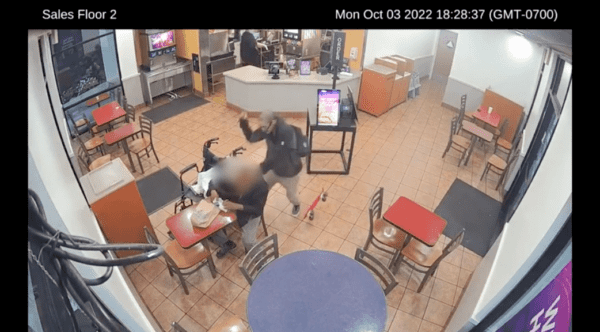By PAUL ANDERSON
Over the course of a decade, the Orange County District Attorney’s Office and Sheriff’s Department “systematically” violated the rights of criminal defendants through the use of jailhouse informants to elicit incriminating statements from inmates awaiting trial, the U.S. Department of Justice concluded Thursday.
Federal prosecutors said the use of jailhouse snitches violated inmates’ Sixth and 14th Amendment rights to legal representation and due process of law. In announcing the conclusions of its six-year investigation, the Justice Department noted that both agencies have already implemented changes and taken remedial steps, and stopped using informants in the Orange County Jail in 2016.
“All persons who are accused of a crime are guaranteed basic constitutional protections that are intended to ensure fairness in criminal proceedings and due process of law,” Assistant Attorney General Kristen Clarke said in a statement. “Prosecutors and law enforcement officers have an obligation to uphold these rights in their fight against crime and in their pursuit of justice, including in the way that they use custodial informants against criminal defendants.
“The failure to protect these basic constitutional guarantees not only deprives individual defendants of their rights, it undermines the public’s confidence in the fundamental fairness of criminal justice systems across the county.”
According to the long-awaited report by the Justice Department — which began its investigation in 2016 — jailhouse informants were used beginning in at least 2007, and they essentially “acted as agents of law enforcement to elicit incriminating statements from defendants represented by counsel,” according to a Justice Department statement.
Sheriff’s deputies then “maintained and concealed systems to track, manage and reward those custodial informants,” according to the Justice Department. “The evidence also reveals that Orange County prosecutors failed to seek out and disclose exculpatory information regarding custodial informants to defense counsel.”
The report mostly faults Orange County sheriff’s deputies for running an extensive informant program that repeatedly violated the constitutional rights of inmates with sophisticated means such as emptying toilets so informants could talk on a “private line” through the plumbing to suspects.
Prosecutors were mostly faulted in the report for being mostly unaware of the informant program, lacking any curiosity about the snitches despite red flags and failing to follow up as required. But, in some cases, some prosecutors were faulted for being aware of what was happening and taking advantage of it, according to the report.
The report focuses on the prosecution of Scott Dekraai, the worst mass killer in Orange County history, which triggered the scandal. Dekraai’s attorney, Scott Sanders of the Orange County Public Defender’s Office, said the report properly notes there is much more work to be done on the issue by both law enforcement agencies.
“This report is a thorough, detailed analysis of what went terribly wrong here for a long period of time,” Sanders told City News Service. “They agreed with and validated what we’ve been arguing for the last decade, and also gave very important warnings that not everything has been solved here and that there’s a lot of work to do and lingering problems with disclosure (of evidence) responsibilities.”
In the Dekraai case, prolific jailhouse snitch Fernando Perez illegally pumped Dekraai for damning information prosecutors wanted to fend off a defense that might include Dekraai’s claim of suffering post-traumatic stress disorder. There was no question of Dekraai’s guilt, so the fight was over whether he would face the death penalty, the report noted.
Dekraai was already represented by an attorney, so it is illegal to have a government agent such as a snitch press the suspect for information. After a round of evidentiary hearings, Orange County Superior Court Judge Thomas Goethals found that Perez illegally obtained information from Dekraai, so prosecutors were barred from using the evidence — which included Dekraai boasting about the killings.
The scandal would have ended there, but Sanders had sources who said sheriff’s deputies lied in their testimony when they claimed no one kept track of the cell-to-cell movement of inmates, as occurred in the case of Dekraai. Those records, called TREDS, which is not an acronym but slang for “retreads,” were uncovered through subpoenas from Sanders in the Dekraai case and the death penalty case against defendant Daniel Wozniak.
Those records, and then-Sheriff Sandra Hutchens’ public denials, including to City News Service, that there was an informant program, triggered a second round of evidentiary hearings that led Goethals to remove the Orange County District Attorney’s Office from the Dekraai case.
A third round of hearings began when Sanders unearthed a sheriff’s log that tracked how deputies rewarded certain snitches. The rewards and perks snitches receive must be turned over to defense attorneys because they can use it to impeach the credibility of the informant as a witness at trial.
The secret log, which was shut down when the Dekraai hearings began, and parts of which were destroyed, proved there was a coordinated informant program in the jails.
As a result, Goethals removed the death penalty as an option for Dekraai, who pleaded guilty to the Salon Meritage killings and was sentenced to life in prison without the possibility of parole.
The report advises the sheriff and Orange County District Attorney’s Office to implement a series of reforms, including more training of deputies in the jail and of prosecutors on the handling of informants and the disclosing of evidence.
Theoretically, federal prosecutors could sue if the recommendations are not carried out and an injunction could be sought. In such cases, a consent decree is typically reached that implements a system that enforces the reforms.
Sanders urged federal officials to follow up.
“They can’t be left to recommendations,” Sanders said. “They have to be recommendations with careful oversight.”
Sanders is currently defending Paul Gentile Smith, whose case also received a great deal of attention in the federal report. In that case, the original prosecutor, Ebrahim Baytieh, was fired by Orange County District Attorney Todd Spitzer for failing to share evidence about the use of informants in Smith’s case. Smith was convicted and sentenced to life in prison without the possibility of parole.
His conviction was overturned in federal court and sent back to state court, and on the eve of an evidentiary hearing, Spitzer’s office agreed to a new trial. Sanders is now pushing for an evidentiary hearing regarding Baytieh’s prosecution of the case.
In a statement responding to the Justice Department report, Spitzer said the document acknowledges there has been no jailhouse informant program in the county since 2016.
“Overwhelmingly, the department report repeats the very issues that I ran on to become the elected district attorney of Orange County — which is to clean up the public corruption that existed under the prior administration,” Spitzer said.
Spitzer said his office has been “cooperating fully” with the investigation during his four years in office.
“Throughout this multi-year investigation, I repeatedly asked the DOJ for input on the numerous reforms I have implemented, including the prohibition of utilizing a jailhouse informant without the express consent of the elected district attorney, and asked for suggestions on additional reforms that the DOJ would like to have in place,” he added.
He said he conducted his own internal investigation into the issue, leading to the firing of a “senior assistant district attorney for failing to properly disclose informant information to the defense.”
“Two other veteran homicide prosecutors resigned or retired while they were under investigation. The report ultimately concluded that they committed intentional negligence in connection with the prosecution of People v. Dekraai,” Spitzer said.
The report, however, criticized Spitzer’s review for putting most of the blame for the scandal on the Dekraai prosecutors.
Spitzer’s “internal investigation team conducted only a ‘cursory review’ of five other prosecutions in which confidential informants were used, but found that there was `insufficient evidence’ to determine whether the prosecutors on those cases had committed misconduct or malpractice,” according to the federal report. “The report made no findings as to whether legal violations occurred in those five cases, though courts in two of the cases granted new trials on the basis of legal violations arising from informant use, and in the remaining three cases we determined that there is reasonable cause to believe that legal violations in fact occurred.”
Spitzer said in his statement that the federal report confirmed the existence of a “robust” informant program in the jails, but said, “Much of this activity was being hid from prosecutors, preventing the proper disclosure of informant information. This is unacceptable.”
The sheriff’s department issued a statement saying it took the issue “very seriously and has worked diligently to address the issues.” According to the department, the agency has made “significant procedural and operational improvements, unprecedented transparency, and multi-layered systems of checks and balances.”
Sheriff’s officials also said they are offering “ongoing training” at “regular intervals across multiple levels of leadership within the department.”
“I take seriously the issue of protecting the constitutional rights of the people in our custody,” Sheriff Don Barnes said in a statement. “I look forward to the DOJ reviewing our current policies, processes and procedures regarding custodial informants. I am confident they will find our current practices have addressed many of their recommendations, and anticipate a prompt and complete resolution to this matter.”







